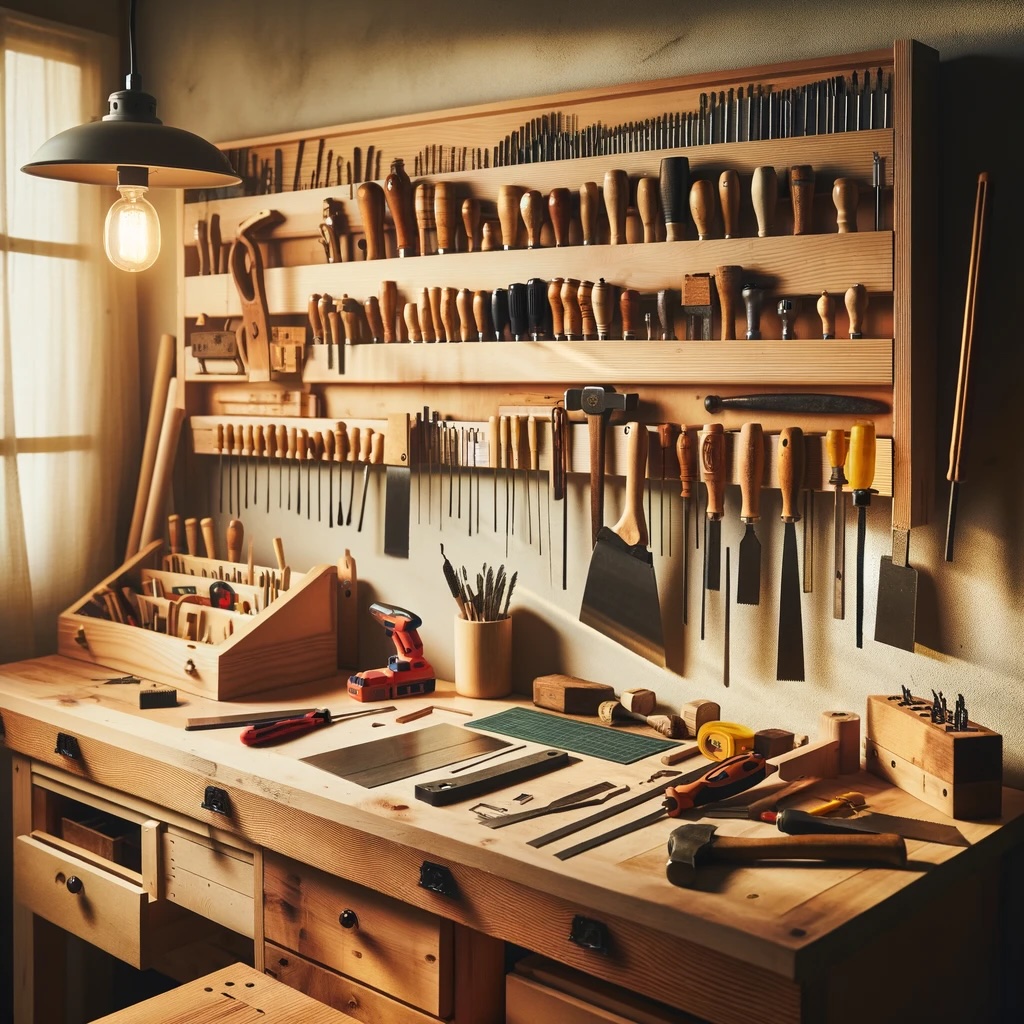
Are you thinking about diving into the world of woodworking but not sure where to start? Don’t worry, you’re not alone! Woodworking can be a rewarding hobby or even a career, but it all starts with having the right tools. Here’s a beginner’s guide to the must-have basic woodworking tools that will help you get started on your journey.
1. Measuring and Marking Tools
Accuracy is key in woodworking, so you’ll need some tools to help you measure and mark your projects precisely.
- Tape Measure: A retractable tape measure is essential for taking accurate measurements of your materials.
- Ruler or Straightedge: A metal ruler or straightedge is useful for drawing straight lines and checking the flatness of surfaces.
- Square: A try square or combination square is crucial for checking the squareness of your cuts and marking right angles.
- Marking Gauge: This tool helps you mark consistent lines parallel to an edge, which is especially handy for joinery.
2. Cutting Tools
Cutting is a fundamental part of woodworking, so you’ll need some tools to help you make clean and precise cuts.
- Handsaw: A good quality handsaw is indispensable for making straight cuts in wood.
- Backsaw: This saw has a stiffened rib on the edge opposite the cutting edge, making it great for more precise cuts like those needed for dovetail joints.
- Coping Saw: A coping saw is perfect for cutting curves and intricate shapes in wood.
- Chisels: A set of sharp chisels in various sizes is essential for carving and shaping wood, as well as for cleaning up joints.
3. Drilling and Boring Tools
Creating holes in wood is a common task in woodworking, so you’ll need some tools for drilling and boring.
- Hand Drill: A hand drill or brace and bit can be used for drilling holes without the need for electricity.
- Drill Bits: A variety of drill bits in different sizes and types (e.g., twist bits, spade bits) will allow you to drill various sizes of holes.
4. Fastening Tools
Once you’ve cut and shaped your wood, you’ll need to fasten pieces together.
- Hammer: A claw hammer is useful for driving nails and pulling them out.
- Screwdrivers: A set of screwdrivers in various sizes and types (flathead, Phillips) is essential for driving screws.
- Clamps: Clamps are indispensable for holding pieces together while glue dries or while you’re fastening them.
5. Finishing Tools
The final step in any woodworking project is finishing, which can involve smoothing, shaping, and applying finishes to the wood.
- Sandpaper: Sandpaper in various grits is essential for smoothing and finishing your projects.
- Block Plane: A block plane is great for trimming and smoothing small areas.
- Wood Files and Rasps: These tools are useful for shaping and smoothing curves and contours in wood.
6. Safety Equipment
Safety should always be a top priority in woodworking, so make sure you have the following:
- Safety Glasses: Protect your eyes from dust and debris.
- Hearing Protection: Protect your ears when using loud power tools.
- Dust Mask: Protect your lungs from inhaling dust.
7. Optional: Power Tools
As you become more experienced and your projects become more complex, you might consider investing in some power tools:
- Circular Saw: Great for making straight cuts quickly.
- Jigsaw: Ideal for cutting curves and intricate shapes.
- Power Drill: A power drill can make drilling holes much faster and easier.
- Orbital Sander: An orbital sander can save you a lot of time in the finishing process.
Conclusion
Starting in woodworking can be a bit overwhelming, but with the right tools, it becomes a lot more manageable. Remember, you don’t need to get everything all at once. Start with the basics and gradually build up your tool collection as you gain more experience and take on more complex projects. Happy woodworking!

